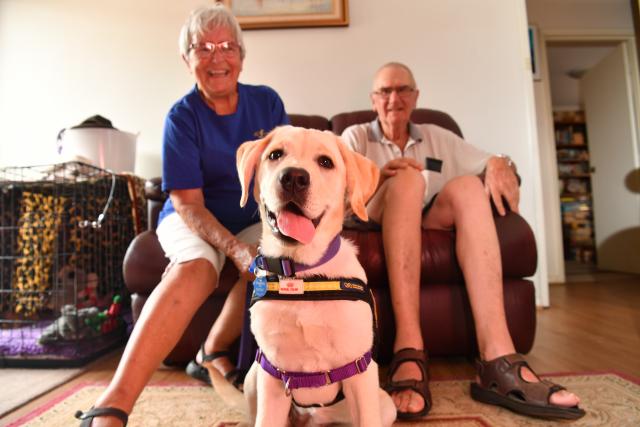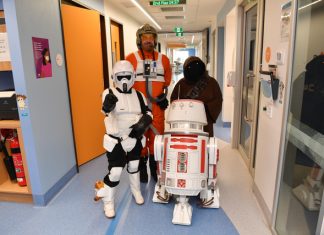
Cade Lucas
For Marilyn and David Scott of Hoppers Crossing, it was the end of one life that gave rise to another.
“We were looking to get another puppy because our own puppy had died, but we didn’t really want to take another dog to the vet for the final time,” said Ms Scott of the sad moment a decade ago that had she and her husband questioning whether continue as pet owners.
Fortunately, a solution was at hand.
“We were looking to see what was around and we’d listed ourselves with border security and seeing eyes dogs and we got meetings with both on the same day,” said Ms Scott of their inquiries about becoming puppy carers for either organisation.
“Seeing eye dogs contacted first.”
And with that, the Scott’s lifelong relationship with dogs changed.
Rather than owning a dog for the duration of its life, the Scott’s now look after labrador and golden retriever puppies that are earmarked to become seeing eye dogs.
“We get them at 8 weeks because they’re born in seeing eye dogs kennels and we usually have them until they’re approximately 12 months old when they go on for further training,” said Ms Scott of the arrangement which she contrasts with normal dog ownership .
“It is quite different, because rather than just being a pet, there’s a certain amount of things they must do and experience, like stairs, public transport, sudden noises, other dogs and people,” she said.
“It’s not difficult, but it’s still a lot of work. It involves a lot of time but then again it’s good fun”
The amount of time and work involved may explain why the Scott’s are among of a diminishing breed of puppy carers, something that threatens the amount of available seeing eye dogs too.
Being retirees, time isn’t an issue for she and her husband, but Ms Scott had another theory as to why carer numbers were low.
“I think people don’t realise there’s the opportunity to do this,” she said, pointing out that carers don’t need to be retirees with a spacious home and a history of dog ownership.
“We’ve got people puppy caring who are in flats or units. You can have them high rise, small houses, farms, it really doesn’t matter.
It can be a single person, a couple, a family. They can have cats, Quite often it’s good that they have cats.”
Prospective puppy carers just need to have a police and working with children check, while all training and equipment such as leads, harnesses and food, is supplied free of charge.
“It really is a lovely thing to do” said Ms Scott though she cautioned there was one downside.
“It is difficult sometimes to hand back a puppy because you put a lot of work into it, but that’s what you’ve got to do,” she said.
“And then you get another one.”
For more information: sed.visionaustralia.org/






